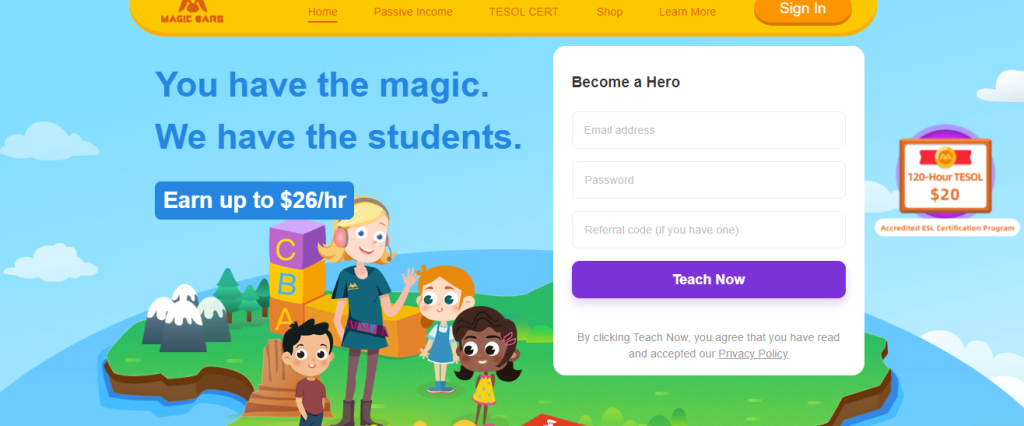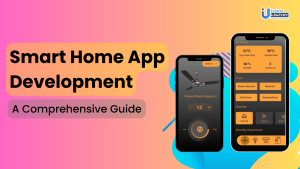Welcome to the future of education! Online tutoring platforms are transforming the landscape of learning, offering unparalleled access to knowledge right at our fingertips. With the e-learning market projected to reach $325 billion by 2025, now is an opportune moment to engage with this thriving industry. This blog post is designed to assist you in creating your online tutoring platform, ensuring it is user-friendly, feature-rich, and profitable. We will delve into the business model, revenue streams, key features, and development options, providing you with a comprehensive roadmap for success in the online tutoring space.
What is an Online Private Tutoring Platform?
Online tutoring platforms are digital marketplaces that facilitate the connection between students and tutors for personalized lessons in various subjects. These platforms create a virtual learning environment through video call software, enabling real-time interaction between tutors and students. They offer flexibility, convenience, and a diverse range of subjects and tutors.
How They Operate:
Find a Tutor:
Students can search for tutors based on their desired subject. The platforms provide comprehensive tutor profiles, showcasing qualifications, expertise, teaching style, availability, and reviews from previous students.
Book a Lesson:
Once a suitable tutor is found, students can schedule and book lessons at mutually convenient times. The platforms handle the scheduling and payment processes.
Attend the Lesson:
Virtual classrooms on the platform serve as interactive spaces for lessons. These often include features like a whiteboard, text chat, file sharing, and more.
Review and Feedback:
After the lesson concludes, students can leave reviews for the tutor. This feedback not only aids other students in making informed decisions but also helps tutors enhance their teaching methods.
Examples of Online Tutoring Platforms:
- Skooli: Skooli provides high-quality tutoring across academic levels, emphasizing personalized instruction. Its platform features an interactive online classroom with live audio, video, and a user-friendly whiteboard.
- Preply: Preply connects students with tutors in languages, programming, music, and art. Tutors set their rates, and the platform offers flexible scheduling.
- Lessonface: Lessonface focuses on live online music, language, and art lessons. It offers both group and one-on-one sessions, committed to equitable treatment of teachers.
Key Market Takeaways of Online Tutoring Services
Smartphone Adoption Driving Global Reach
The widespread adoption of smartphones plays a pivotal role in propelling the global reach of online tutoring services, breaking down geographical barriers, and allowing learners to engage in educational activities from virtually anywhere. In January 2023, BYJU’S introduced a one-on-one home tutoring pilot program, showcasing the industry’s commitment to expanding its reach.
Source: GrandViewResearch
Advantages and Adoption of Online Learning Methods
The surge in online learning methods is driven by various factors, including improved focus, convenience, and cost-effectiveness. Both school students and corporate professionals are increasingly turning to online tutoring services, contributing to the significant growth expected in the forecast period. The advantages of online learning extend beyond convenience, fostering increased productivity and efficiency for both learners and tutors.
Innovative Collaborations and Partnerships
Partnerships and collaborations between mobile app developers and content providers have resulted in innovative solutions. An example is the collaboration between Vedantu and Canva in November 2021, which gave rise to India’s first-ever design challenge. This exemplifies the industry’s efforts to enhance creativity, curiosity, and discovery among students and teachers.
End-User Insights: K-12 Segment and Microlearning
In terms of end-user insights, the K-12 segment claimed a substantial market share of over 56% in 2022. This dominance is attributed to the popularity of microlearning, where major subjects are presented in bite-sized modules comprising texts, audio, videos, and infographics. The K-12 sector’s emphasis on customized tutoring solutions is evident in strategic acquisitions, such as Littera Education Inc.’s acquisition of GoBoard and Tutor Matching Service in October 2022.
Rising Significance of Higher Education Segment
Looking ahead, the higher education segment is poised for significant growth, driven by students’ increased awareness of entrance exam preparation. Notably, in countries like India, students enroll in online tutoring programs to prepare for competitive exams such as the Common Admission Test (CAT) and the Indian Institute of Technology- Joint Entrance Exam (IIT-JEE). The attractiveness of these services lies in their ease of accessibility, underlining the growing importance of online tutoring in higher education settings.
Setting Up an Online Tutoring Business Model
Here’s an example of a business model to step for the outline tutoring platform business,
Key Partners:
- Tutors: Subject-matter experts with strong pedagogy and online teaching skills.
- Students: Individuals seeking academic support across various subjects and levels.
- Technology Service Providers: Cloud platform providers, video conferencing tools, and payment gateways.
- Content Creators: Educators, institutions, and platforms offering pre-recorded video lessons and learning resources.
Key Activities:
- Platform Development and Maintenance: Building and managing the online platform with user-friendly features for learning, scheduling, and communication.
- Tutor Onboarding and Vetting: Implementing a rigorous process to recruit and select qualified tutors with relevant expertise and teaching experience.
- Student Acquisition and Engagement: Marketing the platform to attract students, offering diverse learning resources, and fostering community engagement.
- Matching Algorithms and Recommendations: Implementing AI-powered algorithms to match students with suitable tutors based on learning needs, tutor expertise, and scheduling preferences.
- Session Delivery and Quality Control: Facilitating online sessions through a secure platform, offering recording and feedback features, and implementing quality control measures.
Value Propositions for Students:
- Personalized Learning: One-on-one sessions with experienced tutors who cater to individual needs and learning styles.
- Convenience and Flexibility: Access to qualified tutors anytime, anywhere with online sessions facilitated through video conferencing tools.
- Choice and Control: Search for tutors based on expertise, experience, ratings, and availability, and set their own learning pace and goals.
- Enhanced Academic Performance: Improve grades, gain a deeper understanding of concepts, and develop skills through targeted learning sessions.
- Additional Resources: Access to pre-recorded lessons, practice materials, and learning communities for personalized support beyond sessions.
Value Propositions for Tutors:
- Flexible Income Opportunity: Set their teaching rates and schedule, and earn income based on delivered sessions.
- Reach a Wider Audience: Connect with students from diverse locations and backgrounds without geographical limitations.
- Professional Development: Access to training resources, peer-to-peer learning opportunities, and platform tools to enhance online teaching skills.
- Community and Support: Join a network of fellow educators, share best practices, and receive support from the platform admin.
- Brand Building: Build their online presence and reputation as a sought-after tutor through positive student reviews and ratings.
Customer Relationships:
- Dedicated Customer Support: Provide responsive and personalized assistance to both students and tutors through multiple channels (email, live chat, phone).
- Community Features: Facilitate forums, discussion boards, and Q&A sessions for knowledge sharing and peer-to-peer support among students and tutors.
- Feedback and Review System: Encourage students and tutors to leave feedback and ratings to improve platform features and ensure quality control.
- Regular Communication: Send newsletters, updates, and personalized recommendations to keep users engaged and informed about platform developments.
Channels:
- Website and Mobile App: The primary platform for user registration, browsing tutor profiles, scheduling sessions, and delivering online lessons.
- Marketing and Social Media: Targeted online advertising, partnerships with educational institutions, and active social media presence to reach potential students and tutors.
- Content Marketing: Publish educational blog posts, articles, and video tutorials to demonstrate platform benefits, attract organic traffic, and establish thought leadership.
- Offline Events and Workshops: Organize workshops and seminars on relevant educational topics to connect with students and tutors in person and build brand awareness.
Customer Segments:
- K-12 Students: Seeking academic support in various subjects and preparing for exams.
- College and University Students: Looking for subject-specific guidance or assistance with assignments and projects.
- Adults: Seeking professional development training, language learning, or upskilling in specific areas.
- Parents and Guardians: Searching for qualified tutors for their children’s academic needs.
Best Revenue Models for Online Private Tutoring Platforms
Some of the best-performing revenue models for online private tutoring platforms are
1. Commission Model
The platform charges a fee for each tutoring session conducted on the platform. For example, Preply charges a commission ranging from 18% to 33% based on the total number of lesson hours a tutor has taught on the platform.
Pros:
- Shared Success: The platform shares in each tutoring session’s success, ensuring consistent income while aligning interests with tutors.
- Performance Incentive: Tutors pay only when they earn, incentivizing quality service and attracting motivated educators.
Con:
- Competitive Landscape: High commission rates can put pressure on tutors compared to other platforms, potentially impacting talent acquisition and retention.
2. Subscription Model
Students pay a recurring fee to access either a specific set of courses or all available courses on the platform.
Pros:
- Predictable Revenue: Recurring subscription fees offer a reliable and consistent income stream, allowing for long-term financial planning.
- Engaged Community: Consistent fees foster a dedicated user base, encouraging platform loyalty and positive engagement.
Con:
- Initial Hurdle: Subscription fees can act as a barrier to entry for some users who prefer flexible pay-as-you-go options, potentially limiting user acquisition.
3. Premium Listing
Tutors can opt to pay a premium fee for a top-level listing, increasing the visibility of their profiles to students.
Pros:
- Enhanced Visibility: Featured listings grant tutors greater exposure, attracting more student inquiries and bookings, and boosting their success.
- Revenue Diversification: Premium fees provide an additional income stream for the platform, supporting further development and service improvement.
Con:
- Perception of Bias: This model can raise concerns about fairness, potentially creating an uneven playing field where financial ability impacts tutor visibility.
4. Advertisement Revenue:
The platform generates revenue by partnering with brands to display advertisements. It can be a significant revenue source if the platform has a large user base.
Pros:
- Passive Income Stream: Advertisements offer a supplementary income source without directly charging users, allowing for platform expansion and investment.
- Strategic Partnerships: Effective ad placement can attract partnerships with relevant brands, leading to mutual benefits and value creation.
Con:
- User Experience Impact: Intrusive or irrelevant ads can frustrate users and detract from the overall platform experience, negatively impacting engagement and retention.
5. Gift Cards
Platforms such as TutorOcean offer gift cards that users can redeem for tutoring services.
Pros:
- Sales Boost: Gift cards can act as incentives, encouraging higher platform revenue and attracting new users through gifting opportunities.
- Brand Visibility: Engaging gift card programs can increase brand awareness and positive associations, improving customer perception and potential.
Con:
- Revenue Potential Loss: Unredeemed gift cards represent lost revenue, impacting the platform’s financial performance.
Optimizing Pricing and Payment Strategies
Some strategies to optimize your revenue models,
- Offer Discounts and Incentives: Attract more users with package deals or incentives for referrals.
- Provide Free Trials: Allow potential customers to try the service before committing, increasing conversion rates.
- Integrate Multiple Payment Methods: Accept various payment options to enhance user experience and cater to a wider audience.
- Flexible Pricing: Offer options like hourly rates, package deals, or subscription-based models to accommodate diverse customer preferences.
- Transparent Pricing: Properly state pricing, qualifications, and contact information to create a positive first impression for potential students.
Must-Have Features for Your Online Tutoring Platform
Here are some of the must-have features for your online tutoring platform,
Enhanced User Experience
- AI-powered Matching: Utilize AI algorithms to analyze student and tutor profiles, ensuring optimal pairings for effective tutoring sessions.
- Gamification Elements: Incorporate points, badges, leaderboards, and rewards into educational content to motivate learners with competition and immediate feedback.
- Interactive Whiteboards and Collaboration Tools: Provide virtual whiteboards and collaboration tools for visual explanations, document sharing, and active student engagement.
- Mobile-First Design: Optimize the platform for mobile devices, ensuring a seamless and intuitive user experience.
Personalized Learning and Growth
- Adaptive Learning: Use AI to tailor lesson plans based on student performance, offering more challenging content or additional support as needed.
- Performance Tracking and Insights: Include tracking and reporting features for tutors to gather feedback, enabling continuous refinement of teaching approaches.
- Skill-based Learning Paths: Offer curated learning paths tailored to specific skill development goals, meeting diverse student needs.
- On-Demand Content Library: Provide a repository of recorded sessions, practice materials, and supplemental resources for self-paced learning.
Also read, “Metaverse in Education: Navigating a New Frontier of Learning“
Community and Trust Building
- Community Forums and Chat Groups: Foster interaction and peer-to-peer learning through dedicated spaces for students to connect and share experiences.
- Live Events and Workshops: Allow tutors to host live sessions, Q&A, and guest lectures to add engagement and value.
- Tutor Verification and Background Checks: Implement stringent verification processes to ensure tutor quality and build user trust.
- Secure Data Storage and Privacy Protection: Prioritize robust data security measures and transparent privacy policies to protect user information.
Emerging Technologies
- AR/VR Integration: Provide immersive learning experiences, especially in subjects like science or anatomy.
- AI-powered Language Translation: Enable real-time translation for seamless communication between tutors and students speaking different languages.
- Chatbots and Virtual Assistants: Implement AI chatbots for immediate support, FAQs, and personalized learning recommendations.
- Biometric Authentication: Enhance security and user confidence by implementing fingerprinting or facial recognition.
Also read, “Education App Development – Cost, Features, And More“
How to Develop an Online Tutoring Platform?
Here’s a detailed stepwise guide on how to develop a private online tutoring platform,
1. Market Research and Validation
Analyze the education market:
Before diving into the development process, thoroughly examine the education market. Identify specific niche areas with a high demand for online tutoring services.
Research user needs and preferences:
Conduct surveys, interviews, and focus groups with both students and tutors. Understand their expectations, preferred learning styles, and pain points with existing platforms.
Validate your concept:
Test your platform idea with a small pilot group or prototype to gather valuable feedback. Refine your vision based on this input before moving on to full-scale development.
2. Define Your Value Proposition:
Differentiate your platform:
Identify unique features or benefits that will set your platform apart from competitors. Consider personalized learning, gamification, AI-powered matching, community features, or subject-specific expertise.
Articulate your mission and target audience:
Define your target audience—students, adults, or professionals—and specify the learning needs you aim to address. Craft a clear brand identity that resonates with your audience.
Develop a clear and concise brand identity:
Create a memorable name, logo, and messaging that reflects your platform’s value proposition. Ensure it resonates with your target audience and sets the tone for your educational platform.
3. Design and Development:
Choose a technology stack:
Select the appropriate programming languages, frameworks, and tools that align with your platform’s functionality and scalability requirements.
Plan the UI/UX:
Prioritize simplicity, intuitiveness, and accessibility for both students and tutors. Incorporate interactive elements, mobile optimization, and multi-language support to enhance user experience.
Develop core functionalities:
Focus on building essential features such as user registration, search and match algorithms, video conferencing tools, secure payment gateways, messaging systems, and performance tracking dashboards.
4. Content and Resource Creation:
Curate high-quality learning materials:
Develop or source engaging video lessons, practice exercises, study guides, and supplementary resources aligned with your platform’s learning objectives.
Recruit and onboard qualified tutors:
Implement rigorous screening processes to ensure expert knowledge, effective communication skills, and pedagogical competence. Provide training and support to onboard tutors.
Build a diverse tutor pool:
Cater to a variety of subject areas, learning styles, and languages to attract a wider student base.
5. Marketing and Launch:
Develop a strategic marketing plan:
Identify target channels such as social media, educational forums, and content marketing. Create targeted campaigns to reach your ideal student audience.
Pre-launch buzz:
Generate excitement through early sign-up offers, influencer partnerships, and strategic public relations efforts.
Launch with a clear value proposition:
Highlight your unique features, showcase success stories, and offer compelling introductory offers to attract initial users.
6. Growth and Innovation:
Analyze user data and feedback:
Continuously improve your platform by responding to user needs, refining algorithms, and adding new features based on data insights.
Expand your offerings:
Introduce new subjects, learning formats (group sessions, workshops), or additional monetization strategies (subscriptions, premium features).
Explore emerging technologies:
Integrate AI-powered chatbots, adaptive learning algorithms, or AR/VR experiences to enhance user engagement and personalize learning journeys.
7. Building a Community:
Foster interaction and engagement:
Encourage communication between students and tutors through forums, chat groups, and live events.
Build trust and credibility:
Promote tutor profiles, testimonials, and success stories to demonstrate the platform’s effectiveness.
Recognize and reward achievements:
Implement gamification elements or reward systems to motivate users and celebrate progress.
8. Monetization and Revenue Streams:
Determine your pricing model:
Consider commission-based fees, subscription plans, pay-per-session charges, or premium features to generate revenue.
Offer flexible payment options:
Support diverse payment methods including credit cards, e-wallets, and local currencies to cater to your global audience.
Transparency and fairness:
Ensure clear pricing structures, commission rates, and refund policies to build trust with users and tutors.
9. Legal and Regulatory Compliance:
Data privacy and security:
Implement robust data security measures and comply with data privacy regulations like GDPR and CCPA.
Intellectual property protection:
Protect your platform’s content and technology through copyrights and trademarks.
Terms of service and legal agreements:
Clearly define user responsibilities, platform limitations, and dispute resolution procedures.
10. Ongoing Support and Optimization
Provide excellent customer support:
Offer responsive channels for user inquiries, technical issues, and feedback.
Monitor platform performance:
Track key metrics (user engagement, session bookings, conversion rates) to identify areas for improvement.
Regular Updates:
Keep your platform dynamic by implementing regular updates and improvements to stay ahead in the ever-evolving online education landscape.
Also read, “Top 16 Advantages Of AI In Education“
Tech Stacks to Consider While Developing an Online Tutoring Platform
Here are some of the important tech stocks to develop an online tutoring platform,
1. Front-End Stack
React.js or Vue.js
Creating a seamless user experience is vital in online tutoring platforms, and React.js or Vue.js, as single-page application (SPA) frameworks, excel in delivering reactive interfaces and smooth interactions. Additionally, incorporating Material UI or Bootstrap ensures accelerated development with pre-built components and consistent styles.
Benefits:
- Engaging User Experience: SPAs guarantee fast loading times and dynamic interactions, enhancing student engagement.
- Rapid Development: Pre-built components expedite development, enabling quicker platform iterations.
2. Back-End Stack
Node.js and Express.js
For real-time communication, user authentication, and data management, the combination of Node.js and Express.js provides a robust and scalable environment. Python and Django, on the other hand, offer secure database handling and machine-learning capabilities for personalized learning recommendations.
Benefits:
- Real-time Performance: Node.js facilitates seamless video conferencing, crucial for a smooth tutoring experience.
- Scalability and Security: Python and Django ensure data security and platform scalability.
3. Database
MongoDB or PostgreSQL
The choice between NoSQL (MongoDB) and relational (PostgreSQL) databases offers flexibility for user profiles, content storage, and performance tracking.
Benefits:
- Flexibility and Scalability: NoSQL databases efficiently handle diverse data structures, adapting to future content expansion.
- Data Integrity and Performance: Relational databases ensure consistent data and efficient retrieval for analytics.
4. Communication and Collaboration Tools
Zoom or WebRTC
Real-time communication platforms like Zoom or WebRTC enable high-quality video conferencing, screen sharing, and whiteboarding for interactive tutoring sessions. Integrating Twilio or Pusher APIs enhances communication with video call notifications and chat integrations.
Benefits:
- Seamless Interactions: High-quality video conferencing ensures clear communication and a face-to-face learning experience.
- Real-time Engagement: Notifications and push updates to keep students and tutors informed, improving platform responsiveness.
5. Payment Gateway
Stripe or PayPal
Secure payment gateways like Stripe or PayPal simplify transactions for tuition fees, subscriptions, and tutor payments.
Benefits:
- Convenience and Security: Secure payment gateways build user trust with reliable financial infrastructure.
6. Analytics and Reporting
Google Analytics or Mixpanel
Implementing analytics platforms like Google Analytics or Mixpanel tracks user behavior, session engagement, and platform performance, providing valuable insights for improvement.
Benefits:
- Data-driven Decisions: Analytics guide informed decisions for feature development and marketing strategies.
7. Cloud Hosting
AWS or Google Cloud Platform
Cloud platforms such as AWS or Google Cloud Platform offer scalable hosting infrastructure, ensuring platform performance and uptime regardless of traffic fluctuations.
Benefits:
- Scalability and Cost-efficiency: Cloud hosting adapts to user growth without infrastructure limitations, optimizing costs.
8. Security and Compliance
Cloudflare or Okta
Security platforms like Cloudflare or Okta provide data encryption, user authentication, and compliance with data privacy regulations.
Benefits:
- Data Protection and User Trust: Robust security measures protect user data, building trust and ensuring regulatory compliance.
Top 10 Online Tutoring Platforms in the USA
Here are the top online tutoring platforms, you should know about,
1. Cambly
Cambly stands out as an online tutoring platform with a singular focus on teaching English. Tutors enjoy the freedom to work at their own pace, providing unparalleled flexibility. The platform boasts native English speakers as tutors, ensuring a high-quality teaching experience.
Cambly’s popularity extends globally, attracting English learners from around the world. Tutors can not only contribute to the educational journey but also earn money by engaging in meaningful conversations with individuals seeking to enhance their English proficiency.
Target Demographic
Cambly caters to a diverse audience of English learners globally, regardless of their proficiency levels. The platform is ideal for those seeking flexible learning schedules and personalized English language instruction.
Standout Features:
- Flexibility: Tutors can work at their own pace, creating a personalized learning experience.
- Global Reach: Engage with learners from around the world, contributing to a diverse and enriching teaching experience.
2. BookNook
BookNook offers a flexible online tutoring platform specifically designed to support schools in implementing high-impact tutoring programs to enhance reading skills. The platform adopts a comprehensive approach to small-group reading, enriched by diverse texts and backed by research-based strategies. BookNook ensures a tailored experience, balancing autonomy and support to meet the unique needs of each district.
Target Demographic:
BookNook is tailored to schools and districts aiming to implement effective, research-driven tutoring programs to improve students’ reading skills.
Standout Features:
- Comprehensive Approach: Small-group reading programs enriched with diverse texts and research-backed strategies.
- Tailored to District Needs: Balances autonomy and support to meet the unique requirements of each school district.
3. Chegg
Chegg is a well-established online tutoring platform offering assistance in a wide array of subjects. It stands out by providing 24/7 study support, tutoring help, and a suite of learning tools. The platform not only supports students in their academic journey but also offers opportunities for subject matter experts to earn money by answering questions.
Target Demographic:
Chegg caters to students seeking round-the-clock study support, tutoring help, and learning tools across various subjects. It also appeals to subject matter experts looking to share their expertise.
Standout Features:
- 24/7 Study Support: Students have access to assistance and learning tools at any time.
Opportunities for Experts: Subject matter experts can earn by providing answers and support.
4. Wyzant
Wyzant stands out as a versatile platform connecting students with expert tutors in a multitude of fields. The platform offers one-on-one tutoring with personalized lessons, allowing tutors to set their hourly rates and teach at preferred times. With a vast coverage of over 300 subjects and a pool of more than 65,000 instructors, Wyzant ensures a personalized and flexible learning experience.
Target Demographic:
Wyzant caters to students seeking personalized, one-on-one tutoring across a broad spectrum of subjects. It is also an ideal platform for tutors looking for flexibility in setting their schedules and rates.
Standout Features:
- Personalized Lessons: One-on-one tutoring with lessons tailored to individual student needs.
- Extensive Subject Coverage: Over 300 subjects are covered by a diverse pool of more than 65,000 instructors.
5. Skooli
Skooli distinguishes itself as an online tutoring platform committed to delivering top-notch tutoring services across various academic levels. The platform offers interactive 1-on-1 online lessons, and personalized lesson plans, and even extends its services to corporate language training.
Target Demographic:
Skooli caters to students at various academic levels seeking personalized online lessons. Additionally, it is suitable for corporate clients looking for language training services.
Standout Features:
- Interactive 1-on-1 Lessons: Engage in real-time, interactive sessions for a personalized learning experience.
- Corporate Language Training: Extends services beyond individual students to cater to corporate language training needs.
6. TutorMe
TutorMe stands out as an online tutoring platform that enriches the teaching experience with a plethora of tools, including a whiteboard, text editor, audio/video chat, and screen sharing. Offering 24/7 tutoring in over 300 subjects, TutorMe connects students with verified online tutors from top universities.
Target Demographic:
TutorMe caters to students seeking comprehensive tools and 24/7 support across a broad range of subjects. The platform is ideal for those looking for a dynamic and interactive tutoring experience.
Standout Features:
- Comprehensive Tools: Whiteboard, text editor, audio/video chat, and screen sharing enhance the teaching and learning experience.
- Top University Tutors: Connects students with verified tutors from renowned universities for quality tutoring.
7. Preply
Preply is a versatile platform connecting students with private tutors for lessons in various subjects, including languages, programming, music, and art. The platform offers interactive 1-on-1 online lessons with personalized plans and boasts the world’s largest selection of language tutors.
Target Demographic:
Preply is suitable for students seeking personalized lessons across a wide array of subjects. It particularly caters to language learners with its extensive selection of language tutors.
Standout Features:
- Diverse Subject Coverage: Lessons in languages, programming, music, and art, offering a broad range of options for students.
- World’s Largest Language Tutor Selection: Provides a vast array of language tutors for learners of different proficiency levels.
8. Varsity Tutors
Varsity Tutors offers one-on-one tutoring with personalized lessons, catering to students across all grade levels and subjects. With an easy-to-use interface for students, teachers, and admins, Varsity Tutors positions tutoring as an essential part of the learning experience.
Target Demographic:
Varsity Tutors caters to students at all grade levels seeking personalized one-on-one lessons. The user-friendly platform is suitable for students, teachers, and administrators.
Standout Features:
- Personalized Lessons: Provides one-on-one tutoring with tailored lessons to meet individual student needs.
- User-Friendly Interface: Easy to use for students, teachers, and admins, making tutoring accessible and essential.
9. Tutorroom.net
Tutorroom.net is an online tutoring platform offering a range of features for online tutoring. It provides a virtual classroom with tools like video, messaging, whiteboard tools, and PDF uploads. The platform comes with a primary Learning Management System, ensuring a seamless experience for tutors, headmasters, and students.
Target Demographic:
Tutorroom.net is designed for tutors, headmasters, and students looking for a feature-rich virtual classroom experience. It is suitable for scheduling classes based on tutor availability and timezone.
Standout Features:
- Virtual Classroom: Offers video, messaging, whiteboard tools, and PDF uploads for a comprehensive tutoring experience.
- Learning Management System: Ensures a smooth experience for tutors, headmasters, and students.
10. Magic Ears

Magic Ears is an innovative online English learning platform for students ages 4-12. It hires English teachers from the U.S. and Canada to teach English to children in China. The platform provides a unique 1-on-4 classroom, creating a fun and effective learning environment with a state-of-the-art curriculum.
Target Demographic:
Magic Ears is tailored for English teachers from the U.S. and Canada, offering an engaging 1-on-4 classroom experience for teaching English to children in China.
Standout Features:
- 1-on-4 Classroom: Unique classroom setup for effective and enjoyable learning.
- Supportive Community Culture: Fosters a warm and happy teaching environment, making it a fulfilling experience for teachers.
Conclusion
In conclusion, the development of an Online Private Tutor Platform stands as a revolutionary step towards democratizing education. By harnessing the power of technology, this platform bridges gaps promotes inclusivity, and transforms the traditional learning landscape. The potential for a positive impact on students’ lives is immense, opening doors to a world of knowledge and opportunity.

Looking to develop a tutoring platform? then we can help. Our development experts craft innovative solutions globally. Let’s shape the future together! 🚀 Click the Button Below to get started
FAQs
Q1. How do I create an online tutoring platform?
A1: To establish an online tutoring platform, clearly define your niche and conduct thorough market research to understand your target audience and competition. Identify essential features such as user profiles, scheduling, and payment systems. Choose a reliable technology stack for development, ensuring compliance with educational regulations. Prioritize an intuitive user interface (UI) and user experience (UX). Develop the platform with a skilled team, conduct rigorous testing, and then launch it to the public.
Q2. How do I create a home tutor site?
A2: Creating a home tutor site involves defining your goals, and specifying subjects, grades, and locations served. Implement user profiles for tutors, a robust search and matching algorithm, and a scheduling system for lesson planning. Integrate communication tools like video conferencing and messaging, and include a system for reviews and ratings. Ensure secure payment gateways to facilitate transactions and build a platform that fosters a positive learning environment.
Q3. Is online tutoring profitable?
A3: Indeed, online tutoring can be profitable by identifying high-demand subjects, implementing competitive pricing, and building a sizable user base. Offer a pool of qualified tutors, employ effective marketing strategies, and consider subscription models or value-added services to boost revenue. The profitability of an online tutoring platform is closely tied to its ability to meet the educational needs of users while maintaining financial sustainability.
Q4. How do I create a free tutoring website?
A4: To create a free tutoring website, choose cost-effective platforms like WordPress or Wix. Utilize free tools for video conferencing, scheduling, and document sharing. Foster partnerships with educational institutions or organizations to provide free tutoring. Encourage volunteer tutors and seek grants or sponsorships to cover operational costs. Additionally, build a community around the platform for mutual support and engagement. While offering free services can attract users, exploring sustainable revenue models for long-term success remains crucial.
























